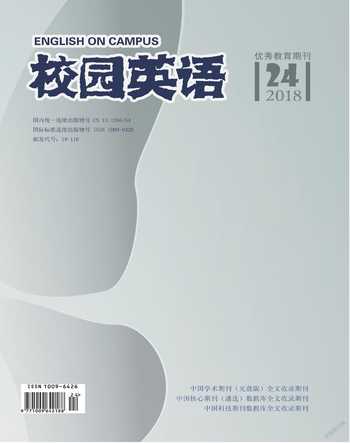Feminist Narratology in Emma
【Abstract】Jane Austen, the first important woman writer in English literature. She intents to establish feminism narrative authority in Emma by adopting feminist narrative techniques. Emma was written in a heterodiegetic narrative, which can strengthen the concealed narrative authority. To conclude, Jane establishes the female narrative authority by using feminist narrative pattern.
【Key words】Emma; Feminist Narratology; narrative perspective
【作者簡介】丁苏娟,江苏省南京工程高等职业学校。
I. Introduction
Jane Austen, an outstanding British woman writer who was born on December 16, 1775 in the village of Steventon in Hampshire. As a female novelist, Jane Austen writes his stories from a feminist perspective.
Emma, a popular novel of Austen’s, published in December 1815 by the publisher, John Murray, is the maturity of Austen’s creation. Women discourses have been in the marginal location, which therefore blinds women from constructing their own discourse rights and realizing their self-identity as women. Under this background, this essay will make a detailed study of Austen’s feminist narratology in Emma, which is a new attempt and a fire-new perspective and is worth digging and deliberating thoroughly. It consists of four parts: introduction, feminist narratology, the narrative perspective in Emma and conclusion.
II. Feminist Narratology
Feminist narratology has a history about twenty years in the West, but it didn’t attract Chinese literary theorists and critics’ attention. From 1980s, many narratologists thought narratology ignored text’s ideological connotation and the social historical context. So they combine narratology and feminism together in order to learn from each other.
When women realized their rights in the late 18th century, Jane Austen began her own literary creation. She has two ways of feminist strategies including narrative content and characterization. In terms of narrative content, women’s routine life, love and marriage are focused on, which is different from male writers’ narrative patterns. Male writers pay more attention to historical events. When it comes to characterization, female figures occupy a large space in her novels.
III. The Narrative Perspective in Emma
Narrative perspective means whether the narrator is present or absent in the story. This essay will use the terms suggested by Genette—heterodiegetic narrative.
A heterodiegetic narrator refers to one who is not a character in the story. Heterodiegetic narrators typically assume the power of omniscience—knowing everything. When inclined to speak overtly, heterodiegetic narrators can speak directly to their addressees, and they can liberally comment on action, characters, and storytelling itself.
Emma was written in a heterodiegetic narrative, which means it was told from the point of view of an omniscient narrator, who expresses Austen’s views and values. One mark of the narrator’s omniscience is her having nothing to learn; her understanding is not changed or enlarged by anything that happens in the course of the narrative. Her values and her insight into the characters and things are the same from beginning to the end of the novel.
The opening paragraphs of Emma suggest the serious defects in Emma’s character and situation, which on the surface seem ideal. What more could we want than to be like Emma—young, good-looking, healthy, rich and free to do as we like? Austen, however, sounds a warning note in the first sentence of the novel, when she comments that Emma “seemed to have some of the best blessings of existence.” “having” and “seeming to have” are obviously not the same thing. The next two paragraphs suggest drawbacks in her situation and character: a lack of parental control, egotism, and willfulness.
In a word, heterodiegetic narrative enables Austen to criticize Emma’s behavior. The narrator is omniscient who is qualified to pass judgment on Emma with commentary to express her ideal female life.
IV. Conclusion
To conclude, with Austen’s particular narrative techniques, Austen successfully establishes the female narrative authority. It may gain a good result from bringing feminism into narrative form. It is a trend.In the long run it is beneficial to the research on the development of women characters, women writers and feminine consciousness.
References:
[1]Hough,Graham.“Narrative and Dialogue in Jane Austen”.Critical Quarterly,XII,1970.
[2]蘇珊·S·兰瑟.虚构的权威:女性作家与叙述声音[M].北京:北京大学出版社,2005.

